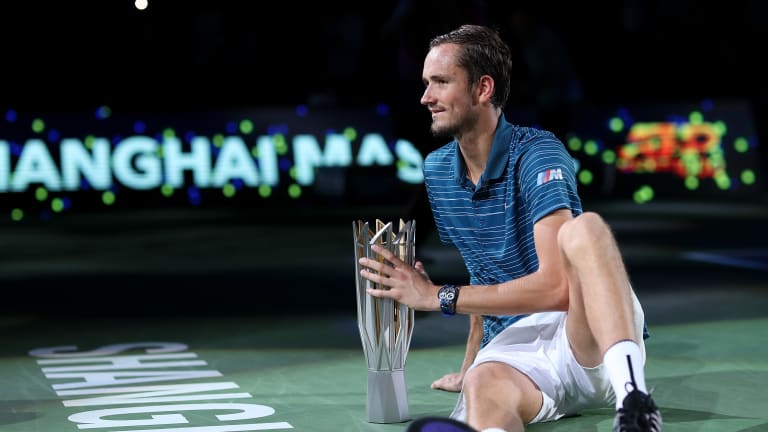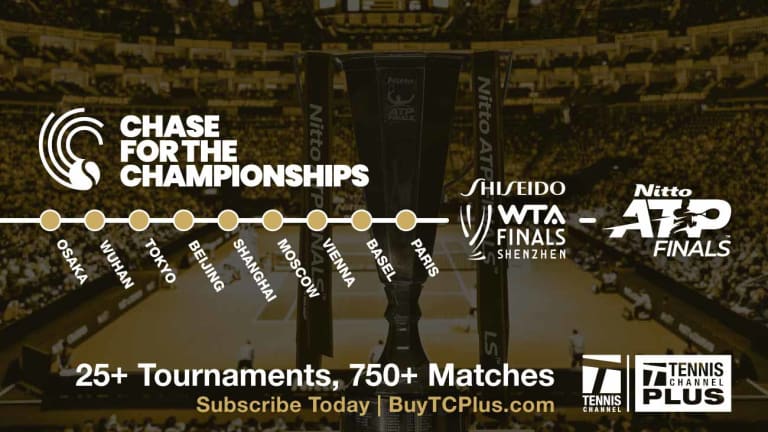ATP Shanghai, China
Daniil Medvedev is doing everything he needs to join the game’s elite
By Oct 13, 2019ATP Shanghai, China
Frances Tiafoe fined $120,000 but not suspended for cursing at umpire in Shanghai
By Nov 14, 2024ATP Shanghai, China
Jannik Sinner showed off superior firepower in generational clash with Djokovic in Shanghai
By Oct 13, 2024ATP Shanghai, China
Shanghai Final Preview: Jannik Sinner—confirmed year-end No. 1—vs. Novak Djokovic, seeking his 100th title
By Oct 12, 2024ATP Shanghai, China
Jannik Sinner quells Tomas Machac to reach Shanghai Masters final
By Oct 12, 2024ATP Shanghai, China
Novak Djokovic, with rivals retired and GOAT status clinched: “I still enjoy competing, but part of me left with them”
By Oct 11, 2024ATP Shanghai, China
Taylor Fritz reaches fifth Masters 1000 semifinal of career in Shanghai with victory over Goffin
By Oct 11, 2024ATP Shanghai, China
Tomas Machac tops Carlos Alcaraz in Shanghai, setting up semifinal against Jannik Sinner
By Oct 10, 2024ATP Shanghai, China
Frances Tiafoe "extremely disappointed" with himself after cursing out chair umpire in Shanghai
By Oct 08, 2024ATP Shanghai, China
"That will be fun": Ben Shelton to face Jannik Sinner for second year running in Shanghai R16
By Oct 08, 2024Daniil Medvedev is doing everything he needs to join the game’s elite
The Russian knows what's essential in tennis, and what isn't; he showed that once again in Shanghai, where he won his third title in his last six tournaments.
Published Oct 13, 2019
Advertising

Daniil Medvedev is doing everything he needs to join the game’s elite
© 2019 Getty Images
Advertising
Daniil Medvedev is doing everything he needs to join the game’s elite
Advertising

Daniil Medvedev is doing everything he needs to join the game’s elite